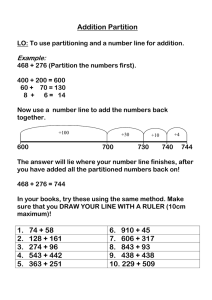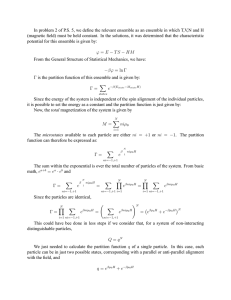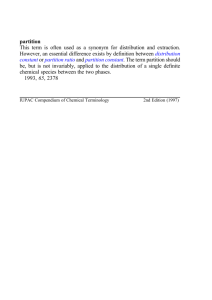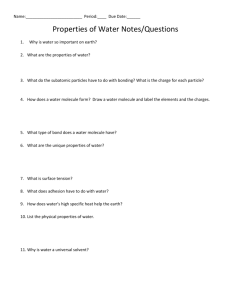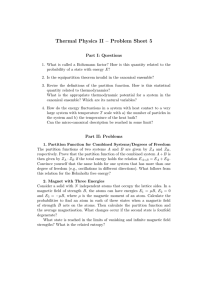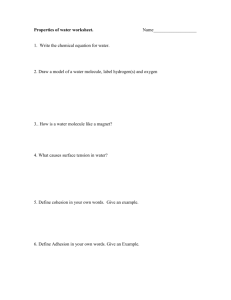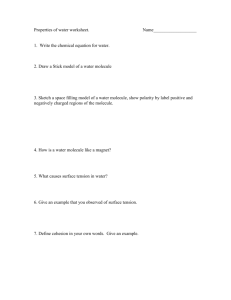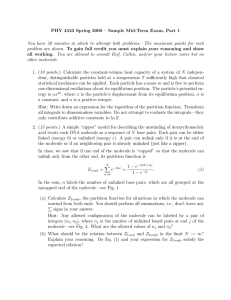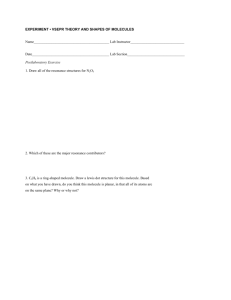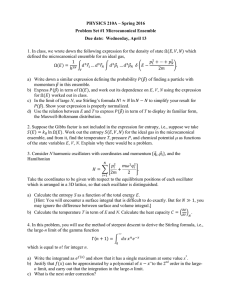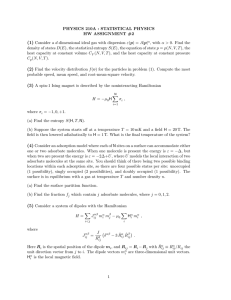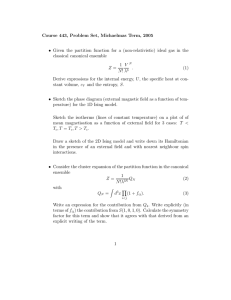Document 10949973
advertisement
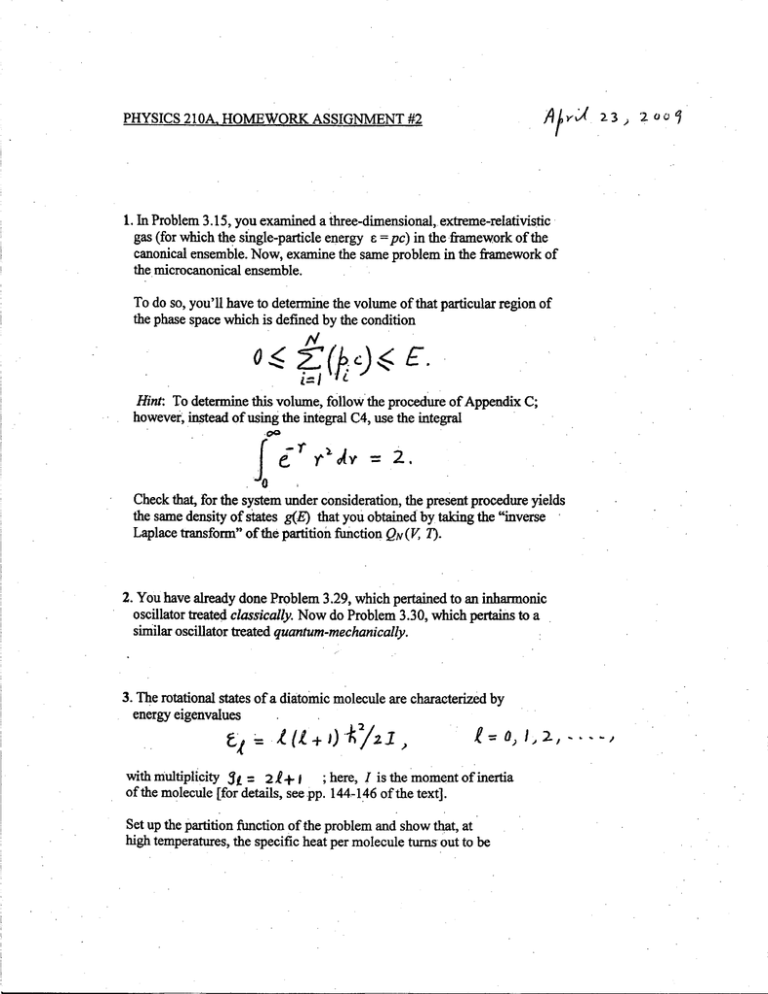
PHYSICS 210A HOMEWORK ASSIGNMENT #2
1. In Problem 3.15, you examined a three-dimensional, extreme-relativistic
gas (for which the smgle-particle energy E = pc) in the framework of the
canonical ensemble. Now, examine the same problem in the framework of
the. microcanonical ensemble.
To do so, you'll have to determine the volume of that particular region of
the phase space which is defined by the condition
.
O~
tV
~(~c)~
n
E.
l::/
Hint: To determine this volume, follow-the procedure of Appendix C;
however~ instead of using the integral C4, use the integral
{Oil'
. 0
'('.Iy = 2 .
'
Check that, for the system under consideration, the present procedure yields
the same density of states g(E) that you obtained by taking the "inverse
Laplace transform" of the partition function QN(v' 1).
2. You have already done Problem 3.29, which pertained to an inharmonic
oscillator treated classically. Now do Problem 3.30, which pertains to a
siniilar oscillator treated quantum-mechanically.
3. The rotational states of a diatomic molecule are characterized by
energy eigenvalues
.
.
t,( ::
1. (l+ J) '-/)/2.1 ~
£=
0; JJ 2,'"'-"
with multiplicity 3t = 2 i+, ; here, I is the moment of inertia
of the molecule
[for details, see .pp. 144-146
.
. of the text].
Set up the partition function of the problem and show that, at
high temperatures, the specific heat per molecule turns out to be
r oJ-./s (*) l
;l.
Cr4
where
k
::
+ .....
*2/21k ·
G :::
Hint: write /(/ + 1)= (/ + Vii - ~ and 2/ + 1 := 2(/ + Vi) , and
evaluate the summation over / (that a.ppears in the expression for
the partition function) by using the following version of the EulerMaclaurin formula rather than the one employed in the text :
=J
pO'
00
~ f (.l+.U
.
P><-).Ix + -t.t
flO)-
o .
with
_
f (~)-=
(~)
-r
X- ~
')(1-
.
4~ Consider a paramagnetic system consisting of N non-interacting
magnetic dipoles, each with spin ~ and mwtiplicity 2, in
'equilibrium at temperature T aild subjected to an externaL-:magnetic field H. Calculate for this system the quantities M, M2
and X :---- and verify that that these quantities do conform to the
general relationship
"":-2
M
_2-
-M
=
kTX.
5. Solve Problem 3.36 of the text.
Note that the factor (~W) in the final result should be
(~wi.
6.. Solve Problems 4.10 and 4.11 of the text.
Note that the parameter No here plays the role of the area of the
surface, which is similar to the volume of a box. So, you have to
evaluate QN (No, T) and.
No, 1) .
Vl(z,
